Orpheus, son of Oeargus and the Muse Calliope, was unlike other men. The god Apollo had placed a lyre in his hands and taught him to draw from it a music that could calm storms. When he played, rivers slowed their courses, trees bent toward him and men forgot their quarrels.
It was this same Orpheus who loved Eurydice, a woman of uncommon grace. Their marriage was brief but filled with happiness, though the wedding god Hymen, called to bless them, spoke a troubling prophecy - their joy would not last.
Soon after, the prophecy came to be. One version of the story says that Eurydice wandered through a sunlit forest in the company of the nymphs when Aristaeus, a shepherd, saw her and overcome by her beauty, started to chase her. In her flight, she stepped on a hidden snake. Another version says she was not pursued at all, she was simply dancing among the nymphs when the serpent bit her. In either telling, the bite was deadly. She died there among the grass and flowers.
Orpheus was inconsolable. His songs became laments, carrying his grief through the world until even the gods heard. In time, he resolved to do what no living man should do, descend into Hades to bring her back.
The journey was only possible because of this music. The wandering dead paused to listen. The Fates wept. Cerberus, the great three-headed hound of the underworld, rested quietly.
At last, Orpheus stood before Hades and Persephone. He played for them a song of loss, a melody so raw and aching that the king of the dead himself was moved. Hades agreed to release Eurydice, but only on two conditions: she must follow behind Orpheus as he left and he must not look back at her until they both stood beneath the open sky.
It seemed a simple enough and Orpheus, agreeing, began his ascent. The dim echo of Eurydice’s footsteps was soft behind him. But the way was long and the silence between them grew heavy. Doubt crept in. Perhaps Hades had deceived him. Perhaps she was only a shade and could not walk this path.
When the first pale light of the world above touched his face, the need to be certain overcame him. He turned. Eurydice was there, almost free, but at once she was drawn back into shadow, her smile fading as she vanished.
Orpheus tried to follow, but the way was closed to him. It is said that a living soul may only enter the underworld once. He wandered the earth in mourning, his music speaking for him.
The end of his life is told in many ways. Some say the Maenads tore him apart. Others claim wild beasts set upon him. Another version says that Zeus struck him down with lightning, fearing he would reveal the secrets of the underworld.
Yet even in death, his voice was not silenced. One story says his head floated down the river, still singing, until it came to the island of Lesbos, where it was kept and honored. Another says the Muses themselves saved it, letting it sing among mortals forever, and placed his lyre in the sky as a constellation.
And so Orpheus remains, part man, part music, forever reaching toward the love he almost brought back from the dead.
Practices inspired by Orpheus & Eurydice:
🌀dance in the forest
🌀listen to music
🌀float down the river, singing
🌀descend into the underworld of the heart for those you love
🌀never look back




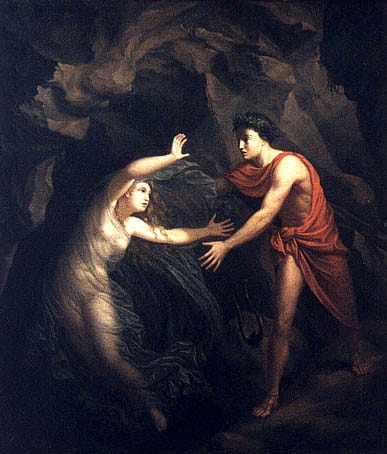

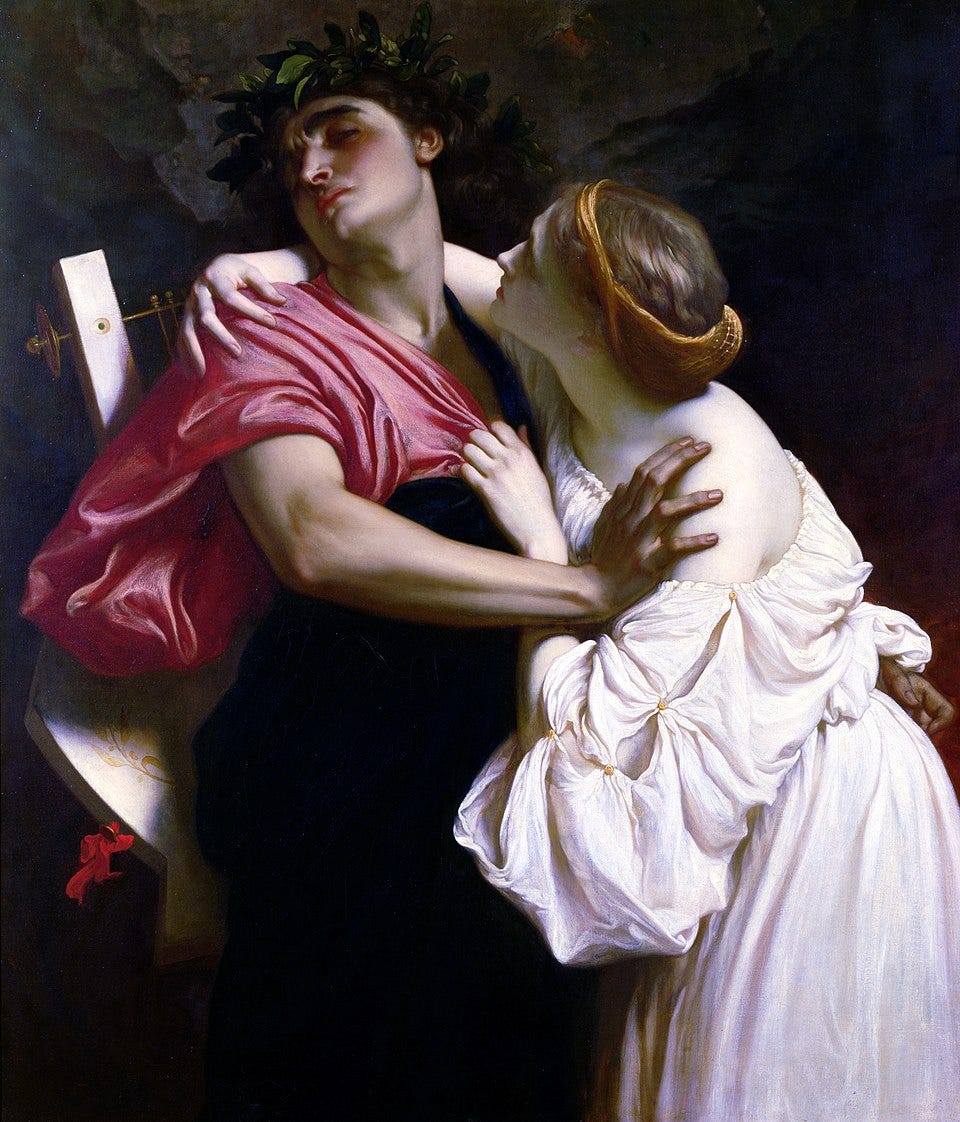
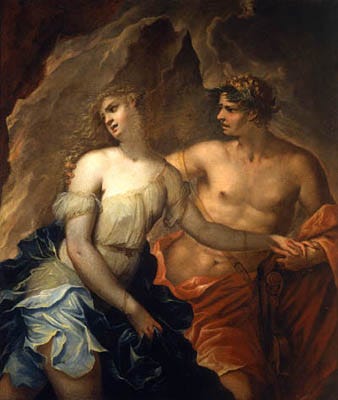
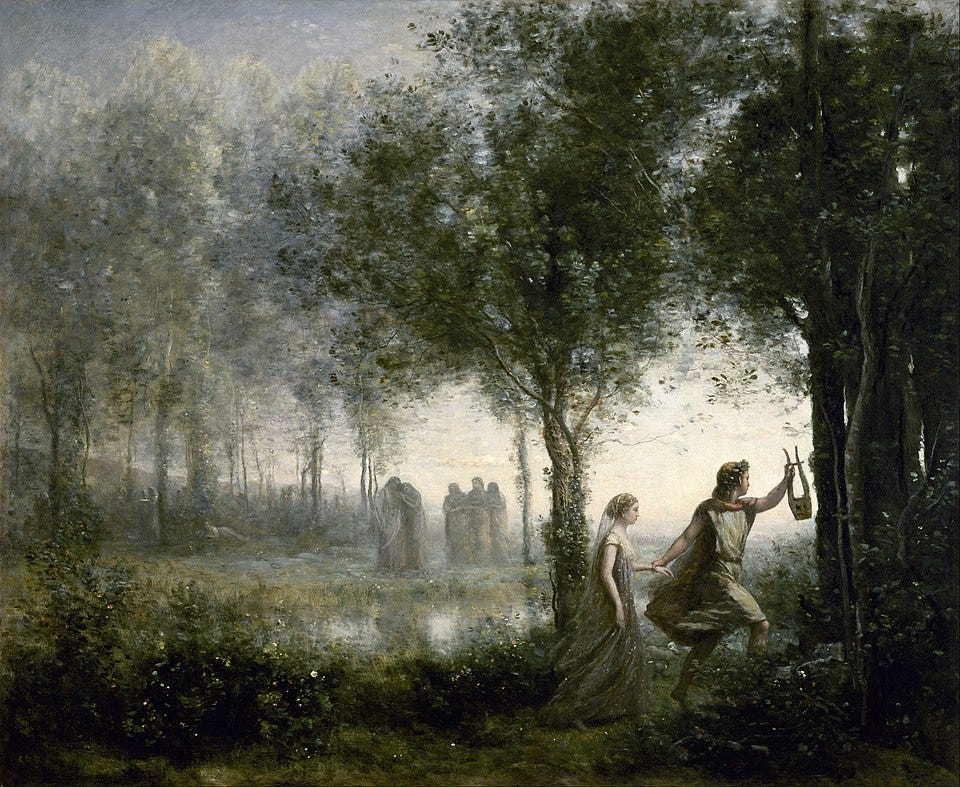
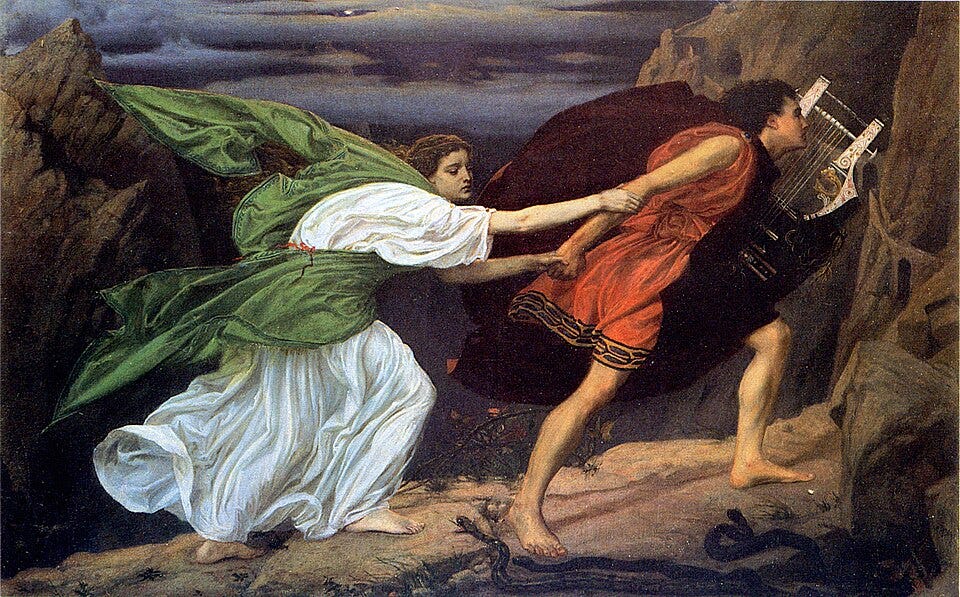
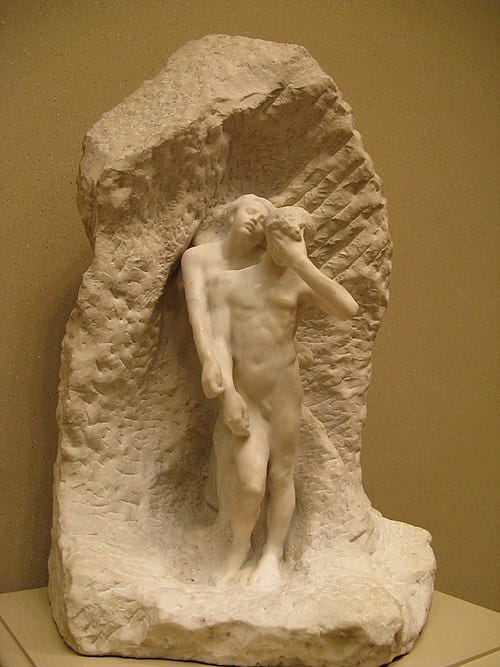
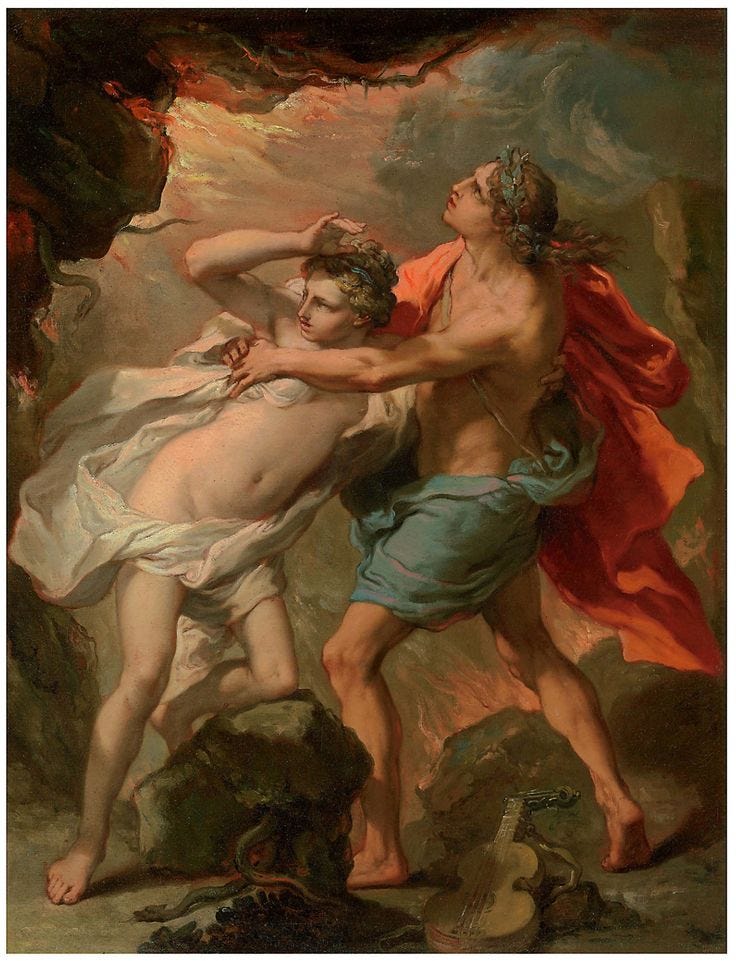
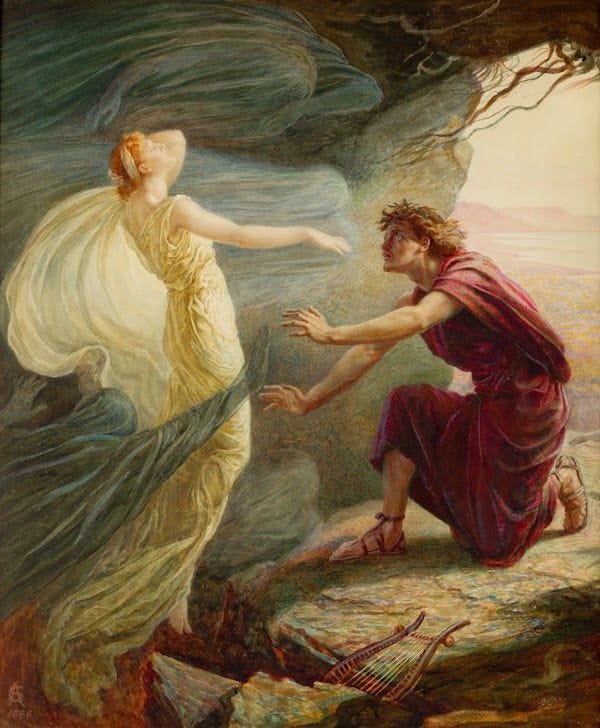
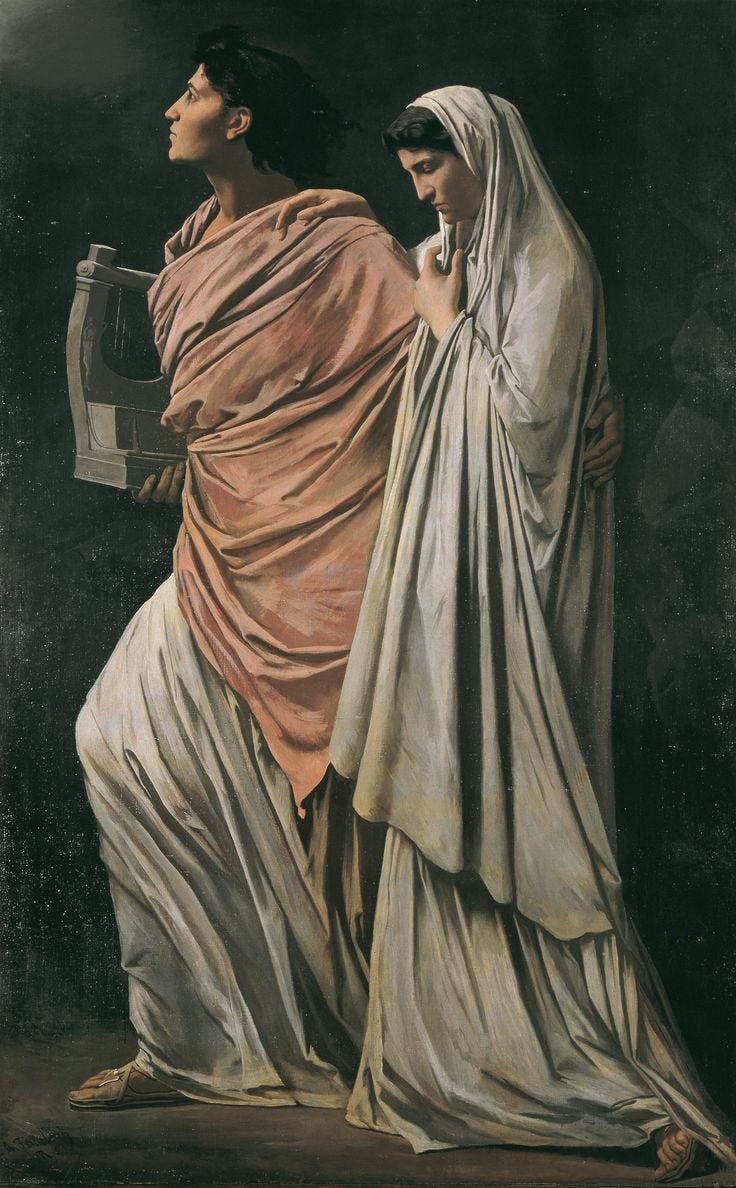
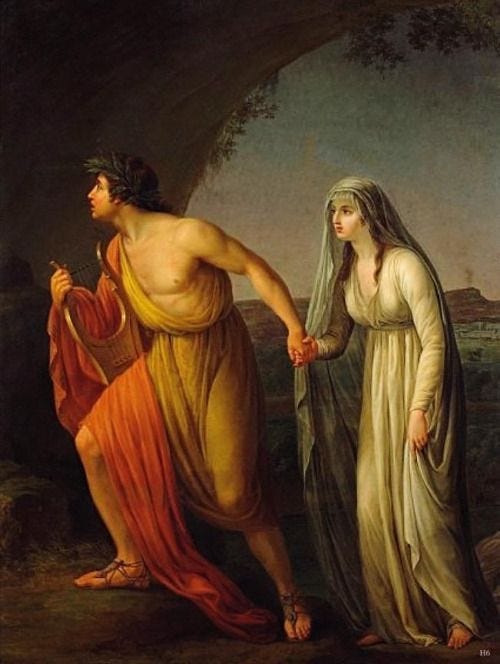
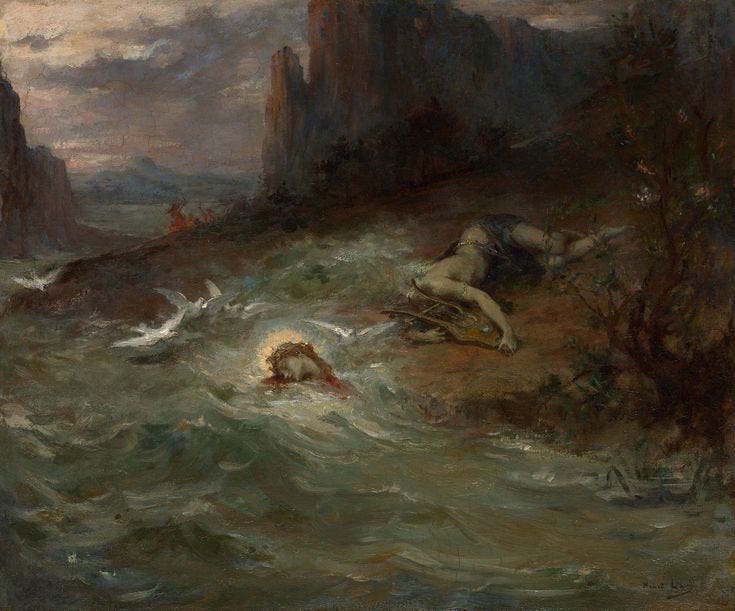
your work has always been so beautiful
What a stirring and powerful story, thank you for sharing this ancient magic with us through your beautiful, graceful voice. Peace, music and love amongst challenge - this really moved me 🥲